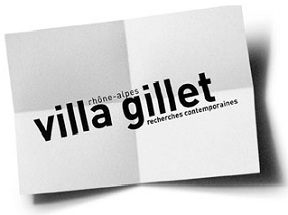Susan Neiman on heroism
Susan Neiman (born March 27, 1955) is an American moral philosopher, cultural commentator, and essayist. She has written extensively on the juncture between Enlightenment moral philosophy, metaphysics, and politics, both for scholarly audiences and the general public. She currently lives in Germany, where she is the Director of the Einstein Forum in Potsdam.
Clifford Armion: You came here to talk about heroism in a discussion at the Villa Gillet. Could you start by defining what makes a hero today? Are there common criteria that you can apply to all heroes?
Susan Neiman: I think we’re very confused about the subject of heroism. I began to get interested in the subject when I realised that we are actually at a historical cesure since the end of the Second World War. It used to be the case although there were many different conceptions of heroism. It used to be unquestioned that everyone wanted to be a hero, and everybody wanted to be a better hero than the next person. What has happened in the last fifty years or so is that the notion of the hero has in many ways been replaced by the notion of the victim. Everyone is competing to be a worse victim than the other. You see this in all kinds of things. One thing in Europe that is particularly strong at the moment is that members of Eastern European countries are often claiming that their victims would need to be recognised as seriously as the victims of the Holocaust. So you have this quite extraordinary international competition to be the biggest victim. Now part of that was the sign of a progressive turn. It used to be the case that the victims were simply the refuse of history and it was heroes who wrote the history and often the victims weren’t remembered. But we don’t think about the fact that what we’ve done in making this reversal is not only giving the victims a voice, which I think is a good thing: it’s making what the world did to you the criterion of recognition rather than what you do to and in the world. It’s a quite devastating reversal which I think unties recognition from activity. That’s the first element that I would like people to focus on. Then they should begin to think: what is the history of the concept of the hero? What has changed in the last couple of thousand years? Of course in the very beginning we know that heroism was primarily military heroism. The only people who counted were the aristocracy.
You already see a reversal in Homer. Even in the Odyssey you begin to see that there are different forms of heroism. You begin to see brains rather than brawn are the driving force. You see in that very famous scene in the Odyssey – when Odysseus visits Achilles in Hades – Odysseus himself says that his glorious death in battle wasn’t worth it, that he would simply rather be alive. So taking Odysseus as a paradigm of a modern hero you might ask what sort of features we have: he is brave, he has fought but his major achievements were not done by battle. It was Odysseus who invented the Trojan horse that won the Trojan war, and it’s Odysseus who survives – he travels through the world – he’s the only person of the major characters to survive the Trojan war which means that an awful lot of people resent him. One of the criteria that has often been used to define a hero is someone who dies a brave and noble death. That’s one of the things I would like to change when thinking about heroism. I don’t think you need to die in order to be a hero. I do think you need to risk something, and it has to be more than risking something on the stock market. I think you can divide heroes into two: heroes who do something for other people and heroes who simply test the limits of human experience, who discover something, who explore something. I find it rather problematic that we talk about sports heroes…
C.A.: Could it be related to the mass media and the fact we tend to confuse heroism with celebrity?
S.N.: Yes. To me celebrity is something very different from heroism. If you look at Lady Gaga or Paris Hilton a few years ago who was simply famous for being famous, clearly you don’t want that to be a criterion of heroism. In fact there are a lot of unsung heroes, people who do things that don’t bring them into the limelight. On the other hand I do think that some people who are celebrities actually do good in the world. There are a number of them and they ought to get credit for it, I don’t think we should sneer it as often as we do. There’s an element of risk. Being a hero still takes courage, even if it doesn’t take physical courage. There’s a perhaps even more important but connected element of self determination. A hero is a grown-up. A hero is someone who can think for himself and act to make some difference on some part of the world.
Cette ressource a été publiée dans le cadre de la deuxième saison du festival "Mode d'emploi", organisé par la Villa Gillet, qui s'est déroulé du 12 au 24 novembre 2013.
Pour citer cette ressource :
Clifford Armion, Susan Neiman, Susan Neiman on heroism, La Clé des Langues [en ligne], Lyon, ENS de LYON/DGESCO (ISSN 2107-7029), janvier 2014. Consulté le 15/02/2026. URL: https://cle.ens-lyon.fr/anglais/litterature/entretiens-et-textes-inedits/susan-neiman-on-heroism



 Activer le mode zen
Activer le mode zen
![[title-image]1332154742093[/title-image] modedemploilogoweb_1357808113332-jpg](http://cle.ens-lyon.fr/anglais/images/modedemploilogoweb_1357808113332-jpg)
